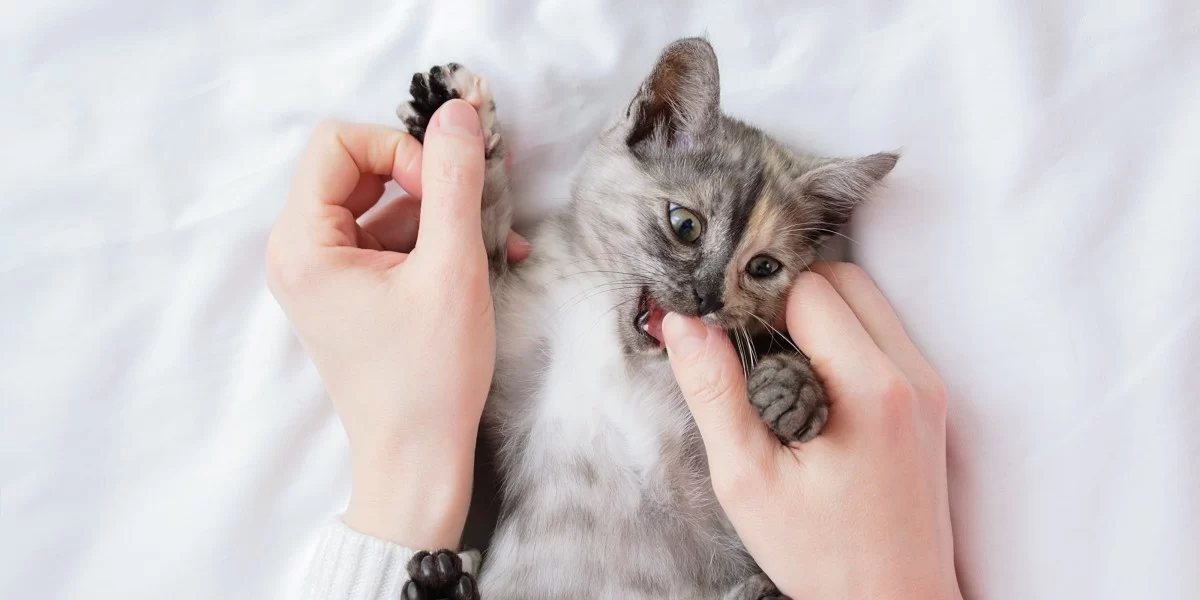How to Stop Your Cat from Biting: Effective Solutions for Better Behavior
- 1. Understanding Why Your Cat Bites
- 2. How to Prevent Cat Biting in the First Place
- 3. Training Techniques to Stop Biting
- 4. Using Products to Help with Cat Biting
- 5. When to Seek Professional Help
1. Understanding Why Your Cat Bites
Cat biting is often a misunderstood behavior. While it may seem aggressive, biting can be a sign of fear, overstimulation, or simply a way for your cat to express themselves. Understanding the reasons behind this behavior is the first step to stopping it.
For example, many cats bite when they are playing too roughly or when they become overstimulated. Other times, they may bite out of frustration or anxiety. Understanding these triggers can help you avoid situations that lead to biting.
2. How to Prevent Cat Biting in the First Place
Preventing biting is all about creating a calm and controlled environment for your cat. One of the best ways to prevent biting is by providing your cat with sufficient mental and physical stimulation. Boredom is a common cause of biting, so make sure your cat has plenty of toys and activities to keep them engaged.
For instance, if your cat is prone to biting during play, try using interactive toys like feather wands or laser pointers to redirect their energy. Additionally, establishing a routine and ensuring that your cat feels safe and secure can also help reduce biting behaviors.
3. Training Techniques to Stop Biting
Training your cat to stop biting requires patience and consistency. Start by using positive reinforcement, rewarding your cat with treats or praise when they show good behavior. When they start to bite, redirect their attention to a toy or another activity that doesn’t involve your hands.
One effective technique is the “time-out” method. If your cat bites, gently place them in a safe space for a short period. This will help them associate biting with negative consequences. Over time, your cat will learn that biting is not an acceptable behavior.
Another useful training tip is to avoid using your hands as toys. Cats often see hands as playthings, which can lead to biting. Instead, encourage the use of toys during playtime to prevent them from associating your hands with play.
4. Using Products to Help with Cat Biting
Sometimes, training alone may not be enough to stop your cat from biting. In these cases, certain products can help. For example, bitter-tasting sprays can be applied to your skin or furniture to discourage your cat from biting. These sprays are harmless to cats but have an unpleasant taste that discourages them from chewing or biting.
Additionally, pheromone diffusers or sprays can help calm your cat and reduce aggressive behaviors. These products release calming scents that mimic natural pheromones, helping to ease anxiety and stress that may be contributing to biting.
If you're looking for more effective solutions, visit Hidden Brook Veterinary for expert advice and recommended products that can assist with feline behavior issues.
5. When to Seek Professional Help
While many cats can be trained to stop biting, some may require professional intervention. If your cat's biting behavior persists despite your efforts, or if it seems to be linked to aggression or fear, consulting with a veterinary behaviorist or animal trainer may be necessary.
Professional behaviorists can assess your cat’s specific situation and create a customized plan to address the root cause of the biting. They can also provide additional training techniques and advice to help you achieve long-term success in managing your cat’s behavior.
For expert guidance and recommendations, visit Hidden Brook Veterinary to learn more about managing feline behavioral issues.










